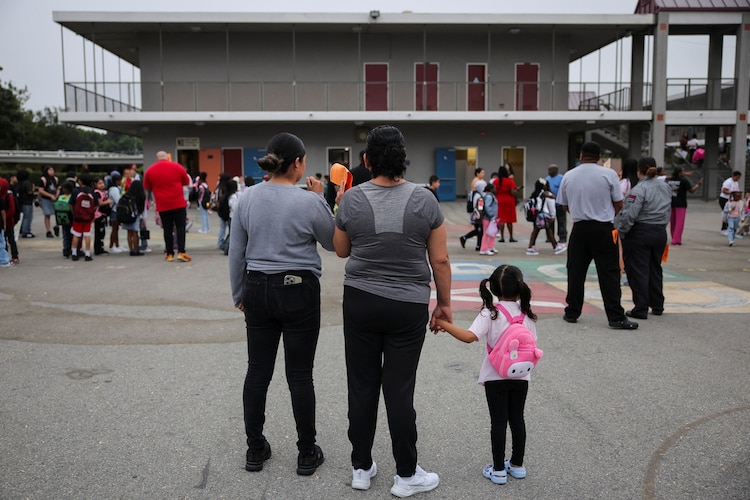As U.S. schools reopen, many immigrant families are anxious about potential deportations under President Trump’s second term. Parents and educators in districts such as Los Angeles and Chicago report that fear of Immigration and Customs Enforcement (ICE) has caused some families to withdraw their children or avoid school entirely.
Chicago Public Schools said ICE agents are barred from entering campuses without a criminal warrant signed by a federal judge. Meanwhile, Los Angeles Unified has partnered with local law enforcement to protect immigrant students, with Superintendent Alberto Carvalho promising safe spaces “regardless of immigration status.”
Educators report heightened fear among mixed-status families, where one or both parents are undocumented. Some families have received detention orders in the mail, while others have unenrolled children from school to avoid potential targeting. Experts warn that such absenteeism could harm children’s education and long-term development.
ImmSchools co-founder Viridiana Carrizales said families dread sending children to school, fearing detention for parents. She stressed that restricting access to education affects the entire community, not just individual students.
Department of Homeland Security Assistant Secretary Tricia McLaughlin clarified that no arrests have been made on K-12 school grounds in Trump’s second term and that students who are U.S. citizens are not at risk. She added that ICE focuses primarily on individuals with criminal convictions or pending charges.
The administration lifted prior restrictions that prevented ICE from operating in schools, hospitals, and churches, stating that the change allows agents to pursue criminals seeking “safe harbor” in sensitive areas.
Educators in Texas and California note that absenteeism surged last year due to fear of enforcement, with some districts expecting lower enrollment this school year. Parents face difficult choices between attending school events and ensuring their families remain safe.
Community leaders emphasize that immigrant children need continued access to education and support to avoid negative impacts on their futures. Many schools are implementing programs and virtual learning options to help families navigate the ongoing uncertainty.

